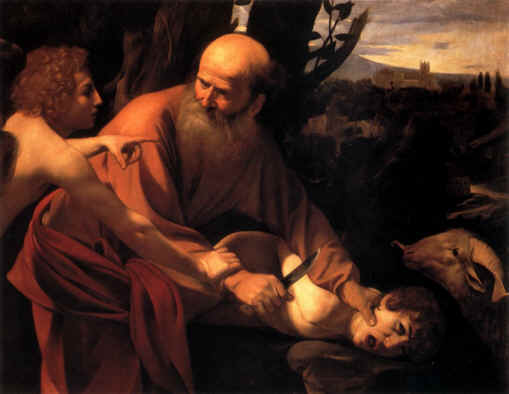Listen to part 1 here and part 2 here
New Covenant Hymnody
I. A Survey of The Regulative Principle of Worship
A. The RPW in the Old Testament
1. Edenic Covenant (Works)
2. Adamic Covenant (Promise)
3. Noahic Covenant (Dominion)
4. Abrahamic Covenant (Royal Land Grant)
5. Mosaic Covenant (Typological Kingdom)
6. Davidic Covenant (Messianic)
B. The RPW in the New Testament
1. New Covenant (All covenants fulfilled in Christ)
- We are now in the semi-theocracy with the Word and the Spirit
- No longer the typological kingdom
- But we still have the RPW
2. New Covenant, New Acts of God, New Songs
- The Psalms instructs us to sing new songs when God does something new
- The New Covenant is new act of God and therefore warrants new songs (Isa 42:10)
C. The New Covenant commands the following elements of worship:
1. The Word (Preached and Taught)
2. Ordinances (Communion and Baptism), Church discipline
3. Prayers, fellowship, offerings
4. The sing of psalms, hymns and Spiritual songs
II. What does Col 3:16 and Eph 5:18 command/Teach
A. We are to meditate on the Word of God to be filled with the Spirit
1. The Word of Christ in Col is the mystery of Christ (Col 1:26-28)
2. In Eph the infilling of the Spirit is be under the influence of the Spirit not infallible inspiration of the Spirit(Eph 5:17)
B. We are then to teach, admonish, and speak to one another in Psalms, Hymns and Spiritual Songs.
C. The context is private not public
1. instruction to Christian households
2. instruction to slaves
3. instruction to inter-personal conduct
III. Exegesis of Psalms, Hymns and Spiritual Songs
A. All wisdom is needed when giving instruction
B. It is in the imperative, so we are commanded to do this
C. Psalms, Hymns and Spiritual Songs are all in the dative; however Psalms and Hymns are masculine, whereas Spiritual Songs is famine.
1. Therefore it is either (a) speaking of different kinds of songs
2. or (b) the same kind of songs having Psalms and Hymns and songs as all spiritual
D. Regardless Spiritual songs in context Col 1:9 means doctrinally pure songs as opposed to worldly songs
E. Therefore Psalms, Hymns and Spiritual Songs is a Triadic expression for New Covenant songs (Col 1:26-28)
F. Psalms are normally personally, Hymns are normally doxological, Spiritual songs are normally both.
IV. The extension to public worship
A. This now can be applied to public worship as a corporate means of fulfilling the same command
B. The New Testament is the full revelation of Christ. Heb 1:1-3 We therefore are to sing the propositional truth found in the New Testament, hence the Word of Christ in Col 3:16 is the lyrical content of the Psalms, Hymns and Spiritual Songs.
New Covenant Hymnody
I. A Survey of The Regulative Principle of Worship
A. The RPW in the Old Testament
1. Edenic Covenant (Works)
2. Adamic Covenant (Promise)
3. Noahic Covenant (Dominion)
4. Abrahamic Covenant (Royal Land Grant)
5. Mosaic Covenant (Typological Kingdom)
6. Davidic Covenant (Messianic)
B. The RPW in the New Testament
1. New Covenant (All covenants fulfilled in Christ)
- We are now in the semi-theocracy with the Word and the Spirit
- No longer the typological kingdom
- But we still have the RPW
2. New Covenant, New Acts of God, New Songs
- The Psalms instructs us to sing new songs when God does something new
- The New Covenant is new act of God and therefore warrants new songs (Isa 42:10)
C. The New Covenant commands the following elements of worship:
1. The Word (Preached and Taught)
2. Ordinances (Communion and Baptism), Church discipline
3. Prayers, fellowship, offerings
4. The sing of psalms, hymns and Spiritual songs
II. What does Col 3:16 and Eph 5:18 command/Teach
A. We are to meditate on the Word of God to be filled with the Spirit
1. The Word of Christ in Col is the mystery of Christ (Col 1:26-28)
2. In Eph the infilling of the Spirit is be under the influence of the Spirit not infallible inspiration of the Spirit(Eph 5:17)
B. We are then to teach, admonish, and speak to one another in Psalms, Hymns and Spiritual Songs.
C. The context is private not public
1. instruction to Christian households
2. instruction to slaves
3. instruction to inter-personal conduct
III. Exegesis of Psalms, Hymns and Spiritual Songs
A. All wisdom is needed when giving instruction
B. It is in the imperative, so we are commanded to do this
C. Psalms, Hymns and Spiritual Songs are all in the dative; however Psalms and Hymns are masculine, whereas Spiritual Songs is famine.
1. Therefore it is either (a) speaking of different kinds of songs
2. or (b) the same kind of songs having Psalms and Hymns and songs as all spiritual
D. Regardless Spiritual songs in context Col 1:9 means doctrinally pure songs as opposed to worldly songs
E. Therefore Psalms, Hymns and Spiritual Songs is a Triadic expression for New Covenant songs (Col 1:26-28)
F. Psalms are normally personally, Hymns are normally doxological, Spiritual songs are normally both.
IV. The extension to public worship
A. This now can be applied to public worship as a corporate means of fulfilling the same command
B. The New Testament is the full revelation of Christ. Heb 1:1-3 We therefore are to sing the propositional truth found in the New Testament, hence the Word of Christ in Col 3:16 is the lyrical content of the Psalms, Hymns and Spiritual Songs.







